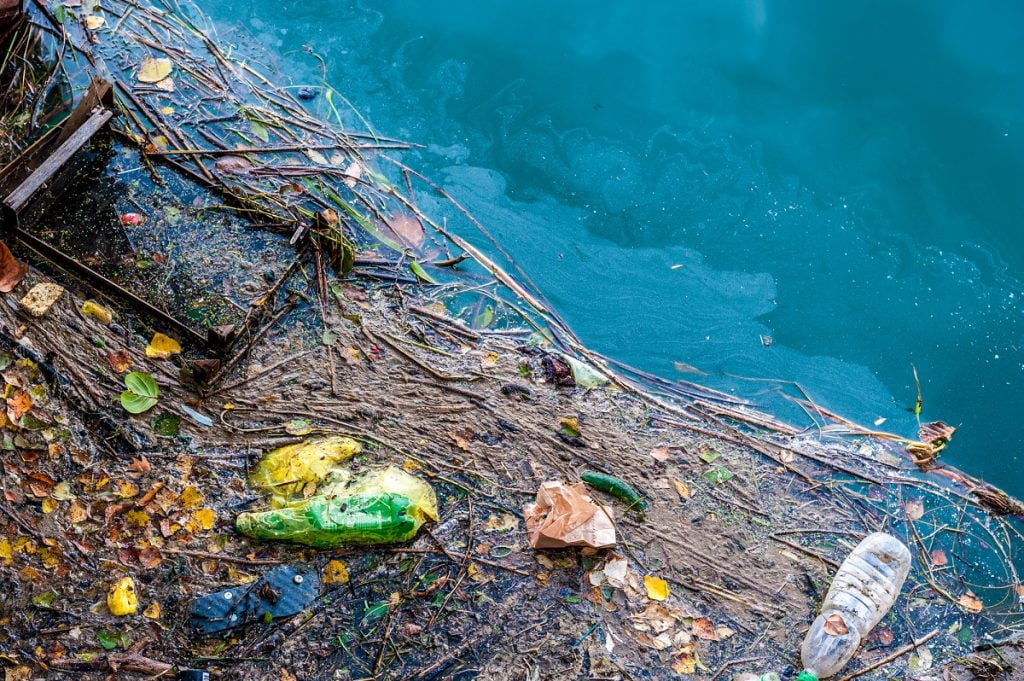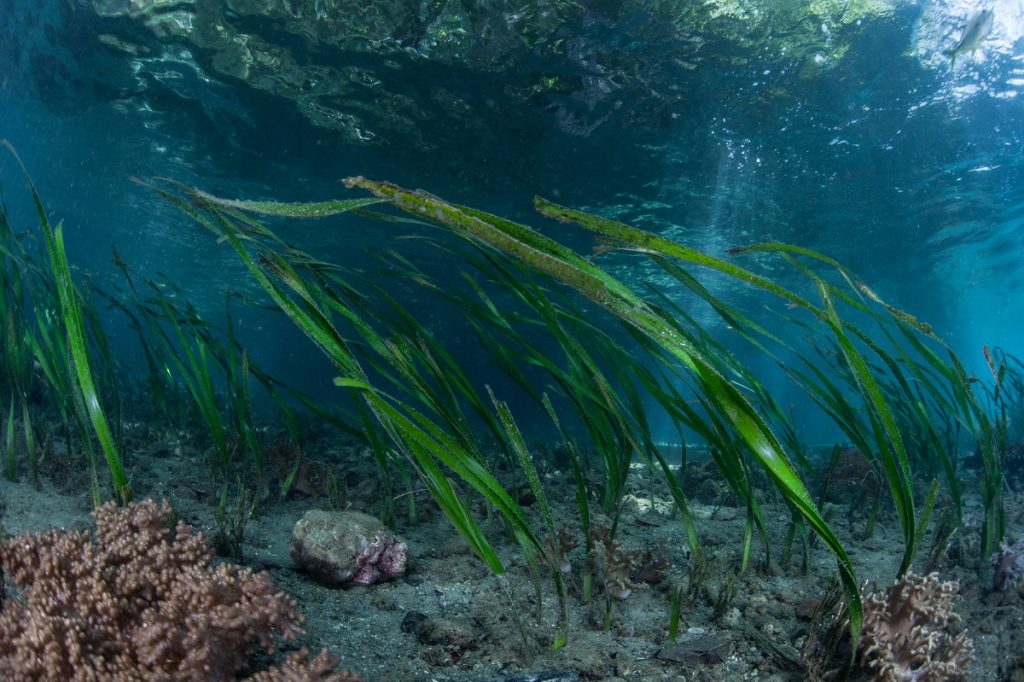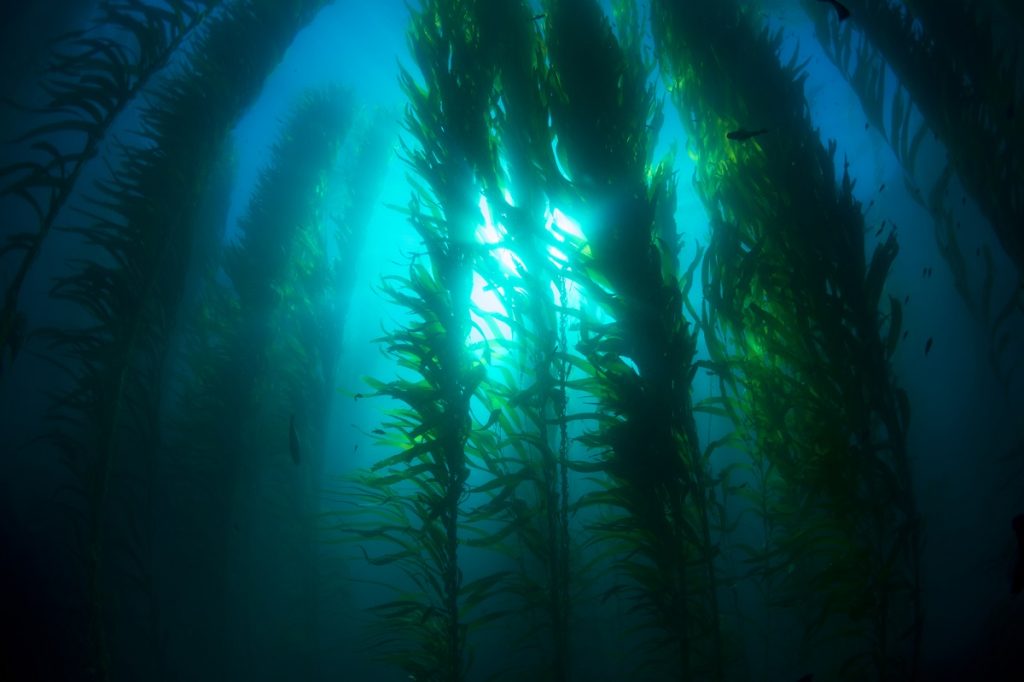The UN has been warning that by 2050 our oceans may contain more plastic waste than fish – a disconcerting outlook given our dependency on healthy ecosystems to survive.
Now, Israeli researchers say they have developed a process to make biodegradable plastics using the ocean’s own resources – algae. And the invention could become a viable counter to enormous amounts of plastic already found in oceans.
In six decades, humans have produced 8.3 billion metric tons of plastic, only nine percent of which has been recycled, according to a 2018 joint report by the National Geographic Society and Great Britain’s Royal Statistical Society. Since plastic takes over 400 years to degrade, many of it still exists in some form in landfills and in our oceans, harming wildlife and marine life and ecosystems.
SEE ALSO: Could Jellyfish Help Rid Our Waters Of Plastic Waste? Israeli Scientists Are On It
Bioplastics are plastics made from biomass sources instead of fossil fuels. They degrade more quickly than regular plastics but require precious natural resources such as land and fresh water.

Water pollution on a river surface. Deposit Photos
Scientists at Tel Aviv University say the bioplastics polymer they developed derives from microorganisms that feed on seaweed, making it biodegradable, with zero toxic waste and completely recyclable. Their research was published in the peer-reviewed scientific journal “Bioresource Technology” in December.
The invention was part of a multidisciplinary collaboration that started a year ago at Tel Aviv University between Dr. Alexander Golberg of TAU’s Porter School of Environmental and Earth Sciences and Professor Michael Gozin of TAU’s School of Chemistry. The research was supported by Supratim Ghosh, a postdoctoral fellow who had recently joined the team from India.
“We had not worked together before, but are now closely cooperating on multiple projects,” Dr. Golberg tells NoCamels of their first project, which has generated widespread enthusiasm.
“A partial solution to the plastic epidemic is bioplastics, which don’t use petroleum and degrade quickly. But bioplastics also have an environmental price: to grow the plants or the bacteria to make the plastic requires fertile soil and freshwater, which many countries, including Israel, don’t have,” says Dr. Golberg.
While bioplastics have been around for several years now, the vast need for agricultural resources has been a major drawback in spreading the technology globally.
Golberg and Gozin’s technology uses microorganisms called Haloferax mediterranei, which could be harvested in very salty water like in the Dead Sea. These one-celled helpers feed on seaweed which can be cultivated offshore and are then used to produce a polymer to create nontoxic and biodegradable plastics.
Dr. Golberg tells NoCamels the discovery holds major promise. “The process we propose will enable countries with a shortage of fresh water, such as Israel, China, and India, to switch from petroleum-derived plastics to biodegradable plastics.”
The potential environmental impact is significant since countries like China and India inadequately manage the majority of their plastic waste. Replacing traditional plastics with bioplastics that disappear in about a year would save our oceans from a considerable amount of pollution.
“Plastic from fossil sources is one of the most polluting factors in the oceans,” Dr. Goldberg said in a TAU statement. “We have proved it is possible to produce bioplastic completely based on marine resources in a process that is friendly both to the environment and to its residents.”

Kelp near the Channel Islands. Deposit Photos
There are still some hurdles, however. The polymer developed by the scientists, called polyhydroxyalkanoate, has to be further processed before it becomes “plastic” as we know it. The challenge here lies in developing polymer blends which deliver different kinds of plastic that exhibit specific properties. Like how a plastic bag differs from a shampoo bottle.
Sign up for our free weekly newsletter
Subscribe“We are now conducting basic research to find the best bacteria and algae that would be most suitable for producing polymers for bioplastics with different properties”, Dr. Golberg explains.
The team of researchers is also working on other related projects, including “a broad library of biodegradable materials,” Dr. Golberg tells NoCamels.
SEE ALSO: SodaStream Builds Massive Marine Contraption To Clean Plastic Waste From Open Water
This library could include polymer blends for all imaginable uses of plastics in everyday life, as well as food sources such as proteins or starches. In January, the researchers published a paper that described how starches could be produced sustainably from marine macroalgae, which then could be used “like wheat, for bread, pasta, all these things,” Dr. Goldberg says.
The research could lead to new food sources amid increasing world demand.
Plastics and alternatives
As the world has become more aware of the detrimental damage to our oceans, as well as to birds and marine life, a number of companies and initiatives have emerged that seek to appeal to the widespread tendency for single-use materials for packaging and transportation, while remaining environmentally friendly.
For example, a company in Indonesia created a bag that looks and feels like plastic but is so eco-friendly that it can be eaten as it is made from Cassava, a vegetable root that is a staple in some Africa, Asian, and Latin American diets. The bag is completely degradable and compostable and even dissolves in water.
A similar product was developed by a Chilean company. The SoluBag is made from limestone and also dissolves in water, causing no harm to the water that absorbs the particles.
Other initiatives to combat plastic waste have centered around reducing the consumption of plastics, waste management, recycling incentives, and even the banning of some products.
There are also more innovative potential solutions.
In 2017, scientists at Ben-Gurion University developed genetically modified bacteria that actually feed off plastic. Bacteria called Pseudomonas putida were genetically modified to “eat” polyethylene-terephthalate (PET), a common type of plastic that’s proliferating in the oceans and on the land. Essentially, the BGU team (dubbed “Plasticure-BGU“) spread these bacteria on plastic particles to make them break down.
There’s also the use of jellyfish to help rid our oceans of microplastics, a project that is the joint collaboration of Israeli scientists and international researchers.
Combined with campaigns to ban single-use plastic straws, bags, and cutlery, all these initiatives may just put us on a path to a safer, less polluted environment.
Related posts

Editors’ & Readers’ Choice: 10 Favorite NoCamels Articles

Forward Facing: What Does The Future Hold For Israeli High-Tech?

Impact Innovation: Israeli Startups That Could Shape Our Future




Facebook comments